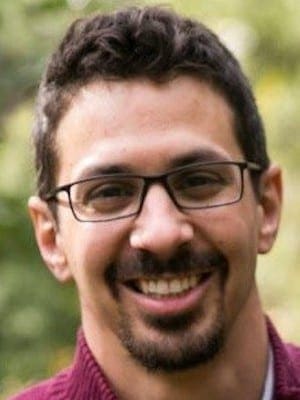Statelessness is a truly global problem affecting an estimated 15 million people and stretching from Europe to Africa and Asia to the Americas.
The Middle East and North Africa (MENA) region suffers chronic statelessness in numerous contexts due to a myriad of historical, political and social forces.
Particular people groups failed to receive nationality during the 20th century state-creation program, including members of the Bedouin, Kurdish and Dom (Gypsy) communities.
In the majority of MENA countries, women are not allowed to pass citizenship to their children on equal grounds as men, which is a major barrier to protecting children from falling into statelessness (as is the case in Lebanon and Syria).
Additionally, historical displacement crises have resulted in large numbers of stateless populations.
More than 4 million Palestinians, both as refugees and residents of Palestine, boast no claim to nation-state membership.
The ongoing Syrian refugee crisis has produced tens of thousands of babies born into displacement situations where challenges in registering births and completing the processes of nationality acquisition leave children at heightened risk of future statelessness.
Facts present the nature of statelessness, but individual lives tell the story.
Beyond the statistics are stories of children who have never had the opportunity to attend school because their lives were never registered, young men and woman unable pursue their dreams because they are not accepted as citizens of anywhere, and partners deeply in love but denied the blessing of marriage because one has no proof of official existence.
Should we not be troubled to live in a world where cats and dogs are issued travel documents and allowed travel around the world while human beings are left without any documentation or recognition of their humanity?
Statelessness is not only a quandary of our modern times but also a contradiction to God’s design for creation.
In Scripture, we read how God created places and created all people to be rooted securely in land, society and community.
It is something we call in theological terms “implacement,” the very idea that our humanity is tied to having a place and being implaced where we are. This is why everyone everywhere desires a home somewhere in this world.
A tragedy of sin is displacement, the uprooting and denial of place. Displacement effectively dehumanizes its victims and bans them from actualizing God’s intention for humanity.
Political theorist Hannah Arendt likens displacement and statelessness as an “expulsion from humanity altogether” in her seminal book, “Origins of Totalitarianism.” Unfortunately, too few recognize this.
What must be recognized is that every human being testifies to the “imago dei,” God’s image apparent in every individual.
Though the stateless lack a national status, they have a human status that entitles them to every amount of worth and value. The stateless belong to God and they certainly belong in this world.
Additionally, it is crucial to recognize that political citizenship, though very important, is limited.
It can never deliver promises of human wholeness and security. Our hope is in the truth declared by the Apostle Paul, “Our citizenship is in heaven” (Philippians 3:20).
That true belonging, true citizenship, is found only in God’s heavenly kingdom and is good news to all, but how much more of a comfort it is to those who will pass through this world knowing no other citizenship than their heavenly citizenship?
Stateless followers of Christ have insight into this mystery of God’s kingdom in ways that “citizens” do not, and the church would do well to listen to the prophetic voices of the stateless as they speak from their earthly position to magnify great truths about what citizenship truly means.
The church today must be concerned with the two hands of citizenship: membership in our global political community and membership in God’s kingdom.
For if one gains an earthly citizenship but has not heavenly citizenship, then she has gained very little. Yet if one gains heavenly citizenship but has not an earthly citizenship, then he misses out on much.
Wholeness requires a dual citizenship: citizenship on earth and citizenship in heaven. Such a status will trump any ban.
To take action against statelessness, you can join the UNHCR #Ibelong campaign.
For information, trainings and resources about statelessness, visit the Institute of Statelessness and Inclusion. A study and toolkit for addressing statelessness in the Syria refugee context are available here.
Brent Hamoud is programs manager for a boys’ home in Mount Lebanon associated with Kids Alive International and oversees a literacy program in South Lebanon. He is a 2016 Institute of Middle East Studies graduate. A version of this article first appeared on the IMES blog and is used with permission. His writings also appear on his blog, and you can follow him on Twitter @ThisHamoud.
Editor’s note: This article is the second of a two-part series. Part one is available here.
Programs coordinator at the Arab Baptist Theological Seminary in Beirut, Lebanon.

